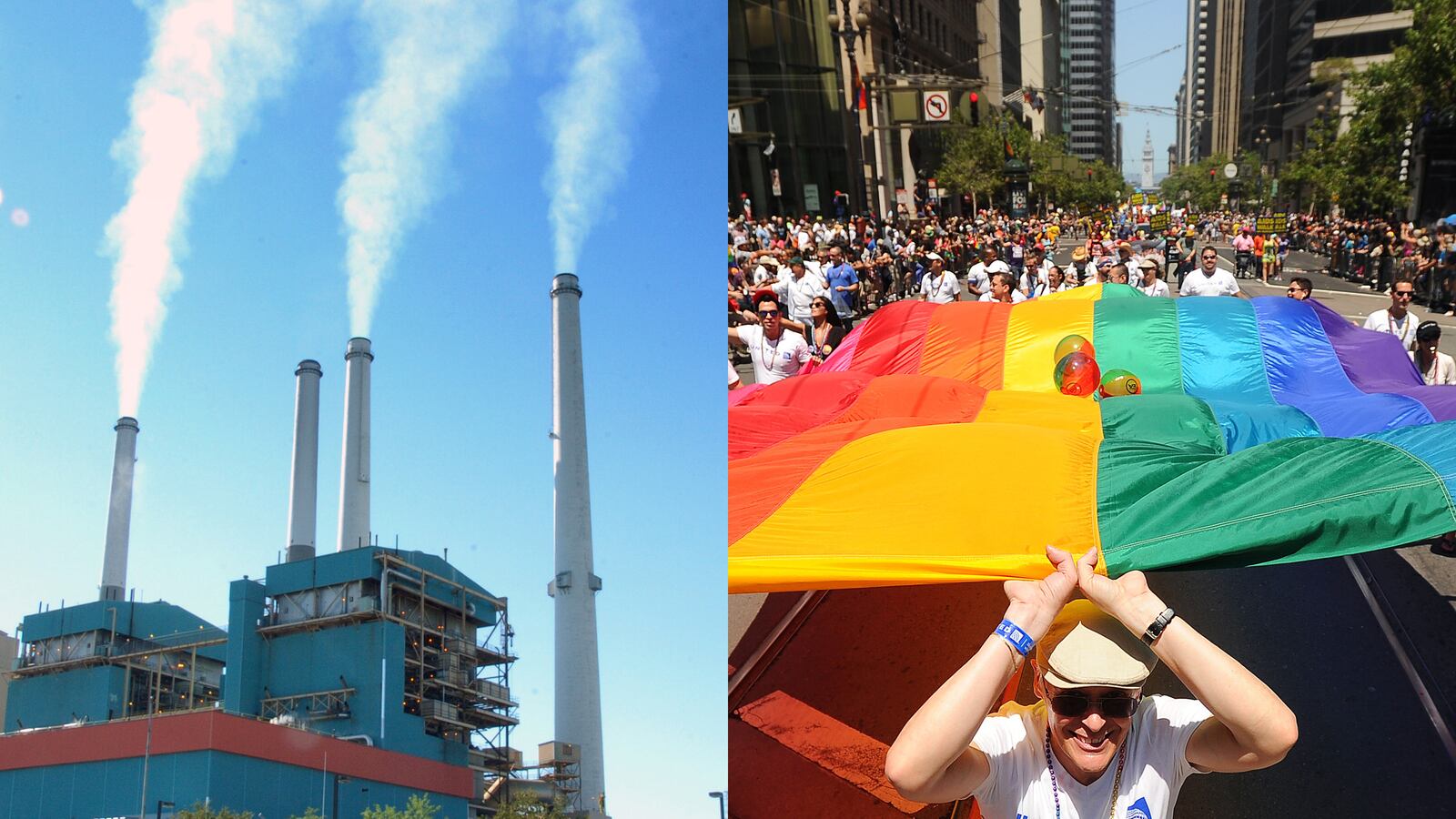There is little question that the gay-rights movement is the most successful social crusade in recent American history. (The Supreme Court rulings sanctioning same-sex marriage only put the icing on that cake.)

So how can that success inspire the most essential fight of our time—a climate movement big enough to demand that Congress do what’s needed to avoid catastrophe by leveling the playing field for renewable energy?
On the surface, this may seem an odd comparison of very different issues. After all, gay rights is perceived as deeply personal and climate change as inextricably global; gay rights as relevant in the here and now and climate change as a largely future occurrence; and gay rights as having one clear demand—equality—while climate change seems to require that we change everything.
Yet consider the similarities: just two decades ago, when people like me came out as gay, we encountered denial, fear, shaming, stereotyping, silencing, and a cultural debate over whether our experience was natural.
Today all the same dynamics are at play around those who “come out” with their concerns about climate change: denial, fear, shaming, and stereotyping that leads, of course, to silencing. And all of this leaves us with little more than a stale debate about whether climate change is natural.
We are, in other words, in the pre-Stonewall age on climate change. But we don’t need to be.
Having researched, written about, and worked in the field of gay rights for nearly a decade (and, more recently, concerned myself with climate change for nearly as long), I see at least seven lessons that climate activists could adapt from the gay rights movement:
Teach people how to talk about it. Gay-rights leaders knew that change would never happen without people speaking their truth in ways that were open, wise, patient, and persistent. Climate leaders need to similarly inspire a psychologically astute “coming out” on climate change—offering people realistic examples of what works, especially in the face of silence.
Cultivate community. The gay-rights movement threw great parties and came together at parades and in community centers to give each other support. They knew, as people concerned about climate change also have cause to know, that challenging issues require a shoulder to lean on.
Have a simple message. “Equality” can fit on a banner, be easily grasped, and represent sweeping changes. “Change everything” might fit on a banner, but is just too big for our psyches to hold.
Tell personal, inclusive stories. Gay activists understood that emotion moves people and that people have to see themselves as part of the story to care. Climate leaders should try to be a little less intellectual and help people see that we’re in all in this together.
Shatter stereotypes. When only a few gay stereotypes prevailed, it was easy for the general public to be dismissive—and tempting for people like me to stay quiet because I didn’t fit the mold. That’s why gay leaders held up a diversity of role models. The American public needs to similarly see that the people who want climate action include parents, doctors, religious leaders, teachers, sports heroes, and, yes, more celebrities.
Focus on heartfelt values. Gay activists talked about love, equality, acceptance, family, work, and fairness. People who care about climate action need to similarly invoke the most basic human values we can all get behind.
Be positive! The gay movement had a celebratory spirit, one of pride in self and pride in a community on the right side of history. Climate leaders need to model this spirit, as it is the only one that will ever attract a mass movement.
In short, what needs to be understood is that climate change is deeply personal: it is about my kids’ future, and yours—the Iowa farmer who can’t count on the weather and the New York family whose house was destroyed. It is about now—because this is, without question, the moment for action. And, ultimately, it is about equality: the equal right of every future generation to enjoy all that the natural world provides and the equal responsibility of every one of us to ensure that they can.






